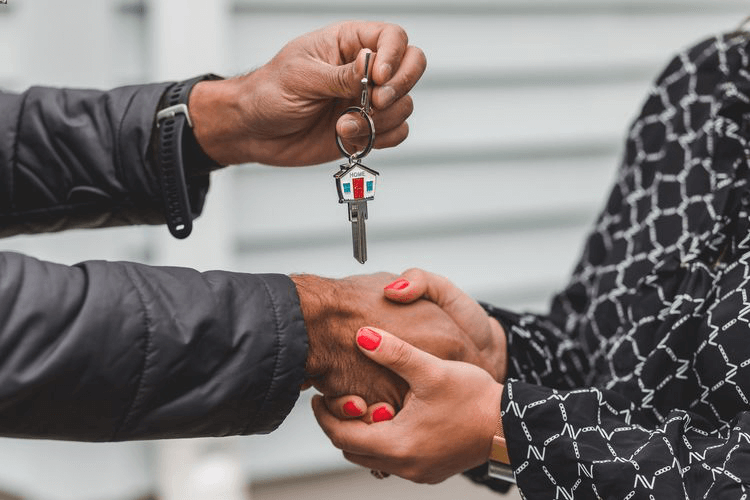-
Lot Size
-
Home Size1,918 sqft
-
Beds3 Beds
-
Baths3 Baths
-
Year Built2022
-
Days on Market13
Closing on a House: What You Should Know
- Real Estate Tips
- October 10, 2023

How Do I Close on a House?
Congratulations! You have finally found the perfect house, and your next step is to close it. But if you find yourself in that situation, you might be asking yourself how the process works and how long it will take to close on a house.
When it comes to dealing with the closing portion of a home sale, there are a lot of procedural steps and formalities involved, and this can be very stressful for people. This is why knowing the necessary information can make closing on a house as smooth and easy as possible.
In this article, we describe the eleven steps necessary to close a house and receive the keys to your new home.
How Long Does it Take to Close on a House?
On average, the closing timeline for a house is between 30 to 45 days. However, the timeline can be shorter or longer depending on the complexity of the transaction and the availability of all parties involved. It’s important to communicate with your Realtor and mortgage lender (if applicable) to ensure everything is completed in a timely manner.
Some of the factors that can affect the closing process include your organization skills, whether or not you are buying the house using a mortgage, the type of mortgage used, the type of house you are buying, the reliability of the seller, the experience of the lender, the type of loan, the housing area, etc.
However, signing the final paperwork is the quickest aspect as it only takes 1 to 2 hours as long as everything goes according to plan.
Learn More About the Closing Process for a Home
As a first-time buyer, you may find the house closing process overwhelming, yet the most rewarding aspect of buying a home. The closing process consists of various essential steps that lead to your official ownership of the property.
Among these are obtaining the mortgage needed to purchase the home, having the home appraised, and conducting a third-party inspection to ensure the home is in excellent condition.
In order to ensure that the purchase of your home is closed as quickly and efficiently as possible, it is important that you know what to expect and how to proceed throughout the closing process.
Without further ado, here is a step-by-step guide to closing a house!
Step-by Step-Guide to Closing on a Home
Getting pre-approved for a mortgage is an important step for buyers who are not using an all-cash approach. all-cash process.
Getting pre-approved for a mortgage helps the closing process become a little bit more smooth. In many cases, sellers expect buyers to provide a letter indicating that their mortgage has been pre-approved. It demonstrates your financial strength to the seller and also gives you the upper hand during negotiations. Also, mortgage pre-approval lets you know how much you can take to purchase a house. This allows you and your Realtor to search for houses that fit your budget, ultimately saving you time and effort.
1. Get a Real Estate Lawyer
There is no doubt about it, buying a house is very complicated. There are many legalities involved that require the expertise of a real estate lawyer. While many believe it is an optional step, experts emphasize that it is an essential part of the closing process. ion.
Therefore, before you begin the closing process, get a real estate lawyer to help you navigate the closing process.
2. Open an Escrow Account
Opening an escrow account is a process that should not be overlooked. An escrow account ensures that you (the buyer) and the seller get a fair deal and are not being cheated by either party.
The account is held and managed by a neutral third party, specifically a title company or escrow agency, on behalf of the buyer and seller until the transaction is complete. The account holds all the funds associated with the purchase of the house, such as the earnest money deposit or other required deposits.
Once the house has been successfully closed, the money and other documents are distributed to your (buyer) and seller’s accounts.
3. Conduct and Run a Title Search
Have your real estate, closing agent, lawyer, or title company conduct a title search on the house you want to purchase. Running a title search shows the complete history of the home, such as unpaid taxes, existing lien, etc.
This shows if the property belongs to the seller and if claims or judgments exist. If any is found, the issue must be resolved before the closing process is continued,
4. Obtain a Title Insurance
This is another optional yet necessary part of the process. During or after the title search, consider getting title insurance. This will help protect against any financial losses that may occur in the case of title claims after you buy the house.
5. Allow a Third-Party Conduct Home Inspection
Get a third-party inspector to carefully inspect every nook and cranny of the home. The inspection covers the structural, electrical, plumbing, and other areas. The inspector thoroughly checks for issues or potential safety hazards in these areas, and if found, you have two options – have the seller fix the issues or back out of the purchase.
6. Check and Complete Your Mortgage Application
Check your mortgage application to ensure you have everything in place. This includes your financial records, such as income statements, bank statements, and recent tax returns. Ask your lender for any other documents required or if you have missed something.
7. Ensure you Get an Appraisal
Many lenders request an appraisal to determine the value of the house. The appraised amount needs to be at least up to or over the price of the house. This enables the lender to approve your loan request. However, if the appraised value is low, then you need to renegotiate the price.
8. Confirm Closing Date
Ensure you confirm the date on which you will close on your house deal. This is the date when you can finally move into the house. Note: The closing date is usually one month after you have finally bought the house.
9. Do a Final Walk Through
Ensure you carry out this step before you sign your closing documents. Conduct a final walk-through before you move into the house to check for new damages (this is after the inspection), changes or repairs you requested, and that nothing has been changed or removed without your consent.
10. Understand the Document
It is essential you understand the closing documents before signing. In many cases, the documents you will be required to sign are over 100 pages and consist of various papers.
Some of the documents include
- Loan estimate
- Initial escrow statement
- Closing Disclosure
- Mortgage and mortgage note
- Certificate of occupancy
- Purchase agreement
This is where you may need the help of your real estate lawyer. Note: If you understand all the legal terms and jargon, you can go through them yourself; however, it is advisable for a real-estate lawyer to be with you to help you thoroughly understand the legal terms and conditions.
11. Sign the Closing Deal
Once everything is completed, it is time to sign the closing deal. Congratulations! You have officially purchased the house.
Note: During the signing process, if there is something you find unclear, ensure you call the attention of your real estate lawyer.
Final Thoughts About Closing on a House
Closing on a house can be a stressful and complicated process, but it doesn’t have to be. Ensure you have all the right help and necessary information. Take your time to thoroughly research the closing process, ask the right questions, and have all the necessary documents ready.
Knowing what is needed helps prevent possible delays. Also, do not rush to sign the paperwork, and be wary of any external pressure throughout the process.






